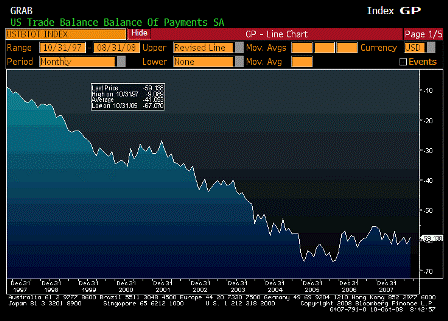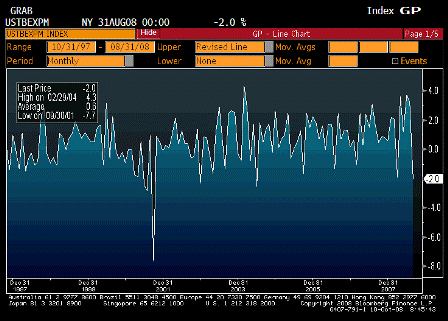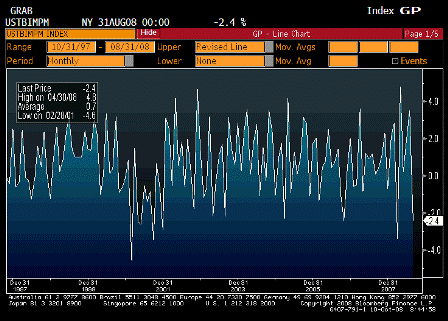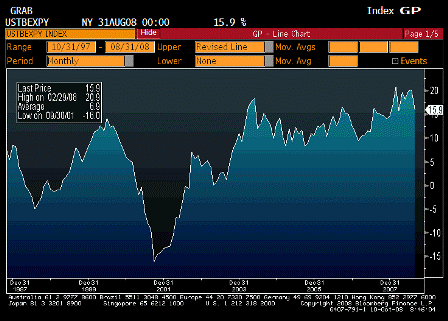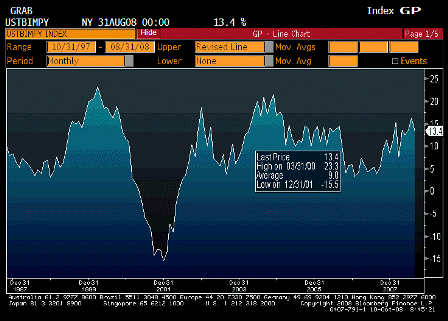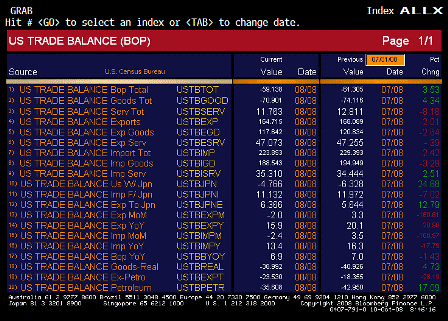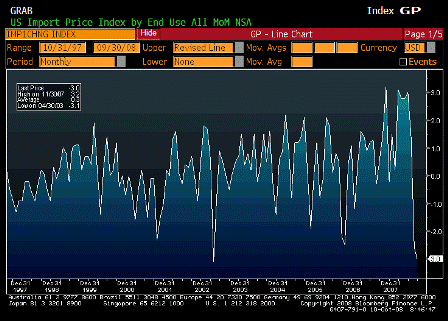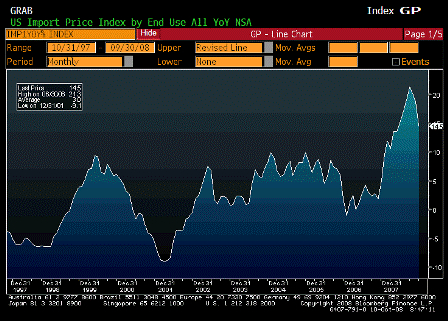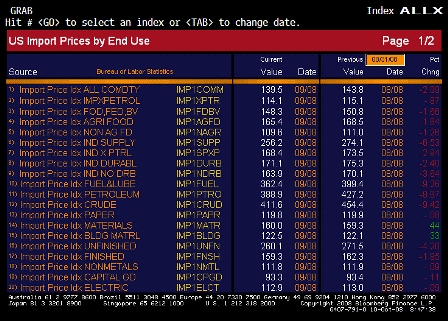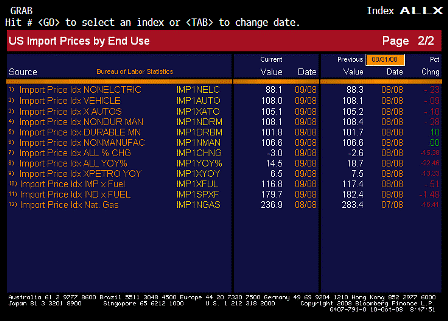(email exchange)
Yes!
“There is a way to get money flowing through the banking system and financial markets almost instantaneously. The Federal Deposit Insurance Corp. has the authority to declare an emergency in the financial markets if the secretary of the treasury requests it. If an emergency is declared, the FDIC could announce that until the crisis abates, all depositors and other general creditors will be protected if an FDIC-insured bank fails.”
This presumably can include Fed deposits at member banks, which opens the door for Fed unsecured lending which is currently illegal.
Now the trick is to get the word to the right people at Treasury!
Along with, of course, a payroll tax holiday to sustain aggregate demand.
Warren
>
> On Thu, Oct 9, 2008 at 12:32 PM, Jeff wrote:
>
We need to get it right
by William M. Isaac
Political leaders told us last week that if the Wall Street bailout bill did not pass, the stock market would drop by 1,000 points and millions of people would lose their homes, jobs and credit cards.
Congress passed the bill, yet the markets have gotten worse.
I believe the problem is that the bailout package does not deal with any of the four fundamental issues that must be addressed immediately: fear, bank capital, fiscal stimulus and help for homeowners.
Fear: The financial markets are frozen throughout the world. Banks will not lend to other banks and, to the extent they do, the cost is exorbitant. There is a lot of liquidity but it is being hoarded.
Which banks will fail and how will their creditors be treated? Will the government protect just the insured depositors or will it protect the uninsured depositors, bond holders, and other general creditors? The government has handled these claims in different ways in the failures to date, so there is considerable anxiety in the markets.
There is a way to get money flowing through the banking system and financial markets almost instantaneously. The Federal Deposit Insurance Corp. has the authority to declare an emergency in the financial markets if the secretary of the treasury requests it. If an emergency is declared, the FDIC could announce that until the crisis abates, all depositors and other general creditors will be protected if an FDIC-insured bank fails.
What would this cost taxpayers? In my view, nothing — indeed, it should save taxpayers a lot. It will get the financial markets working, help put the economy back on track and reduce the bank failure rate.
We already have an implicit guarantee in place for the largest banks, which control the bulk of our banking assets. Making the guarantee official during this crisis and extending it to the rest of the banks is essential and reasonable.
As I write this article, Ireland has guaranteed its banking system and Denmark and several other European countries appear headed in that direction. If enough follow, the U.S. will have no choice but to act.
Bank capital: The Securities and Exchange Commission adopted fair value accounting in the 1990s. This rule required financial institutions to mark their securities to market. I have argued against fair value accounting for more than two decades because I know that we could not have contained the severe banking problems of the 1980s if we had to deal with fair value accounting rules.
A bad idea became highly destructive when the SEC decided to continue fair value accounting after the market for mortgage securities evaporated last year. In the absence of a market, the SEC forced banks to mark these assets to an arbitrary index.
Mortgage securities were marked to a fraction of their true economic value, which destroyed $500 billion of capital in our financial system. Since banks lend about $10 for each dollar of capital, the SEC’s rule diminished bank lending capacity by $5 trillion. Is it any wonder we have a severe credit contraction?
Even now, the SEC continues to fiddle while the financial system and the economy burn. The SEC needs to suspend fair value accounting — act now, study it later. This will begin the process of restoring bank capital so banks can start lending again. Instead of the Treasury and Federal Reserve taking over our lending markets, we need to help our private banks do the job.
Another readily available tool to restore bank capital is one that the FDIC used in the banking crisis of the 1980s to give capital-short, but otherwise viable, banks injections of capital to help them get through difficult economic times. The program was a big help in the FDIC’s resolution of the $100 billion market insolvency in the savings bank industry at a total cost of less than $2 billion. A precursor of the 1980s program was the Reconstruction Finance Corporation, created to provide capital to banks during Great Depression.
The FDIC should resurrect this program immediately. It will limit the failures of community banks and put them back into the lending business more quickly.
Fiscal stimulus and help for homeowners: The bailout bill will not solve our banking crisis because it is not attacking the right problems. Instead, we should direct a good portion of the bailout money to providing permanent stimulus to the economy and to helping families who are in danger of losing their homes.
I believe Congress should get off the campaign trail and get back to Washington to get the bill right this time. The world is looking to us for leadership.

